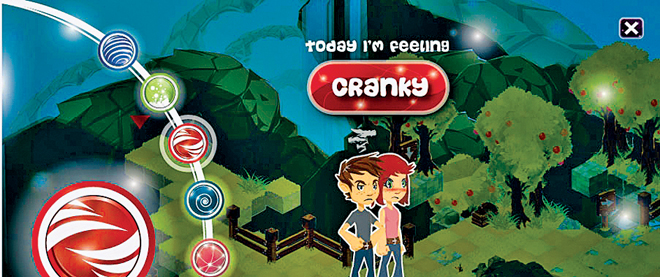Using avatars to assess mental health
‘Assigning a number [from one to 10] to how you feel doesn’t give the whole picture’
University of Manitoba
Share

Pediatric nursing and video game development don’t usually appear in the same sentence. But University of Manitoba professor Roberta Woodgate has brought them together in the same laboratory. A seasoned nurse and professor, Woodgate teamed up with Winnipeg tech company Complex Games five years ago to create a “virtual computer environment” (she is hesitant to call it a game) that gauges the psychological moods of child cancer patients. EMÜD—pronounced “e-mood”—is an online adventure that allows young people with cancer to create their own avatars and explore up to seven virtual fantasy worlds—complete with bridges, mazes and imaginary pets—while at the same time answering specially engineered questions about their psychological state. Woodgate says her motive is to assess the mental health of patients in an interactive and diversionary way, rather than subject them to a series of questions in a doctor’s office. Or as she puts it, “Assigning a number [from one to 10] to how you feel doesn’t give the whole picture.” Her ultimate goal is for kids “to communicate how they’re feeling in a fun way.” EMÜD will undergo a pilot test in the new year. If all goes well, Woodgate hopes it will become a tool used by people suffering from “any life-changing event.”